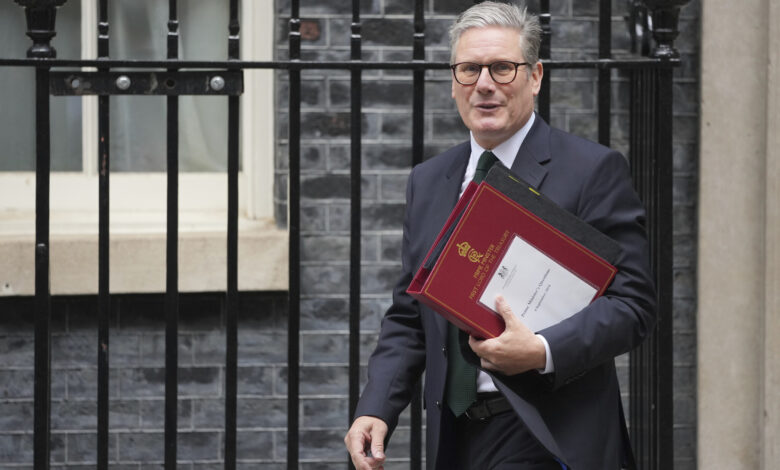Could Starmer’s Decision on Arms Ban to Israel Strain US-UK Relations?

A recent ban on arms sales to Israel by Keir Starmer has set off a debate on its consequences for US-UK relations. The sharp departure from previous UK policies, in light of escalating tensions in the Middle East, signals what could be far-reaching implications for diplomatic Could Starmer’s Decision on Arms Ban to Israel Strain US-UK Relations?
A recent ban on arms sales to Israel by Keir Starmer has set off a debate on its consequences for US-UK relations. The sharp departure from previous UK policies, in light of escalating tensions in the Middle East, signals what could be far-reaching implications for diplomatic relations between the United States and the United Kingdom.
Context and Decision
That the decision is a reflection of growing international unease over the Israeli-Palestinian conflict in the light of events such as recent escalations. In that case, the Labour Party leader of Britain’s most influential political figures described the arms ban as a moral stance necessary to deal with ongoing human rights violations and move toward peace in the region. This is after staunch pressure from activists and humanitarian groups who cite that UK-made weapons have been used in military operations against civilians in Gaza.
Starmer’s stance fits into a wider European trend of reevaluating arms trade practices with Israel, but it sharply contradicts the historically strong UK-Israel defense relationship and previous UK policies that had maintained a more neutral stance regarding arms sales.
Impact on US-UK Relations
The United States has been an ally of Israel for many decades, providing extensive military aid and even political support. The close relationship between the two nations extends to defense cooperation, intelligence, joint military exercises, and a raft of security initiatives. At this level of alliance, where the UK goes ahead and bans arms sales to Israel, there does arise an element of straining this transatlantic relationship.
The US government has expressed concern over anything that would weaken Israel’s security. Although the official response has yet to be released, history dictates that such a pivotal policy shift could amount to diplomatic tension. To the Biden administration, which has always been very supportive of Israel, this move finally misaligns their strategic interests with those of America, particularly at this juncture when geopolitics are most sensitive.
Possible Consequences
Diplomatic Strain: The US-UK partnership is foundational to both countries’ foreign policy and global strategy. Any divergence in policy, particularly on sensitive issues such as arms sales and conflicts in the Middle East, leads to diplomatic strains. The UK’s ban on arms could be perceived as a challenge to the US’s position and its efforts to support Israel, which might result in a cooling of diplomatic relations.
Defense and Security Cooperation: The US and the UK are close partners in defense and security matters. If the UK’s policy towards arms sales is seen as undermining Israel’s security, that would encourage reviews of joint defense initiatives and intelligence sharing. While not likely to result in a breakdown of relations, such tensions might cause both countries to handle their defense cooperation judiciously.
Public and Political Reactions: Both countries’ public and political reactions could continue to affect their relations. Starmer’s move within the UK may be a question of high principle, which would place him at ease with human rights advocates. On the other hand, in the US, this is a dangerous break from a long tradition of support for Israel and could, therefore, attract criticism from pro-Israel groups and their alignment of lawmakers.
Conclusion
Keir Starmer’s ban on the sale of arms to Israel is a severe blow to UK foreign policy and risks complicating the relationship between the US and the UK. If based on human rights, the intention behind such a policy is justified; however, the geopolitical implications may threaten the good relations of many years between the two countries. Both countries would continue to be extra cautious in dealing with this thorny issue. At the same time, the crisis unfolds to keep their strategic alliance intact and meet their domestic and international priorities.




